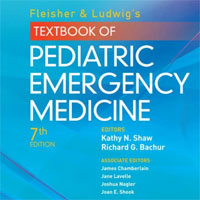Tag: trauma
Management of Pain, Anxiety, and Delirium in Critically Injured Pediatric Trauma Patients
PICU-specific care bundles have been beneficial in standardizing the assessment, prevention and treatment of pain, anxiety and delirium. While these practices show promise in addressing current management challenges in... read more
Awake, Walking, and Intubated – The ICU Breakthrough Giving Patients Their Lives Back
If they knew what it's like for patients surviving after the ICU, that sedation isn't sleep, and that they're being so traumatized and damaged by these normal practices, they would change this. Picture this: it's your... read more
Pulmonary Barotrauma in COVID-19 Patients: Experience From a Tertiary University Hospital
Mechanical ventilation (MV) in COVID-19 patients is often complicated with pulmonary barotrauma. The aim of this study was to determine the incidence and risk factors associated with the development of pulmonary barotrauma... read more
Outcomes of ECMO in ARDS in Pediatric Trauma Patients
Among children who suffer from acute respiratory distress syndrome (ARDS) complications following trauma, the use of extracorporeal membrane oxygenation (ECMO) failed to show any association with mortality benefit. More... read more
Antithrombin III Levels and Outcomes Among Patients With Trauma
In this cohort study of trauma patients, antithrombin III deficiency was associated with greater severity of illness and worse hospital outcomes. Specifically, antithrombin III deficiency was associated with fewer ventilator-free... read more
Hyperoxemia in Acute Trauma is Common and Associated with a Longer Hospital Stay
This study indicate that hyperoxemia is not associated with increased 28-day mortality compared to normoxemia. Nonetheless, both moderate and severe hyperoxemia are frequently detected in trauma patients, with severe hyperoxemia... read more
Clinical Examination Skills in the Adult Critically Ill Patient
This well-illustrated book provides detailed guidance on all aspects of physical examination in patients requiring emergency or intensive care. After an introductory section covering basic principles and the recognition of... read more

The Hidden Value of MRI: Modifying Treatment Decisions in C-spine Injuries
This study provides a critical evaluation of the implications of additional magnetic resonance imaging (MRI) use in the diagnosis of c-spine injuries. We have demonstrated that an adjunctive MRI extends patients' ED stays,... read more
Trauma Medical Home: New Coordinated Care Model for Injured Older Adults
Older adults who suffer serious injuries from a fall or a motor vehicle accident often have impaired long-term functioning and diminished quality of life. A new study, published in JAMA Surgery by researcher-clinicians... read more
Patients with TBI: Characteristics, Triage, Primary Referral and Mortality
Traumatic brain injury (TBI) is a potential high-risk condition, but appropriate care pathways, including prehospital triage and primary referral to a specialized neurosurgical centre, can improve neurological outcome and... read more
Impact of a Rounding Checklist Implementation in the Trauma ICU on Clinical Outcomes
We aimed to evaluate the effectiveness of an intensive care unit (ICU) round checklist, FAST HUGS BID (Feeding, Analgesia, Sedation, Thromboembolic prophylaxis, Head-of-bed elevation, Ulcer prophylaxis, Glycemic control,... read more
Traumatic Major Hemorrhage in a Tertiary Trauma Center
Major traumatic hemorrhage is potentially preventable with rapid hemorrhage control and improved resuscitation techniques. The time from injury to hospital, resuscitation, diagnosis, and definitive bleeding control should... read more
Critical Hypertension in Trauma Patients Following Prehospital Emergency Anesthesia
Delivery of prehospital emergency anesthesia (PHEA) to seriously injured trauma patients risks hemodynamic fluctuation. In adult trauma patients undergoing PHEA, 11.9% of patients experienced post-PHEA critical hypertension.... read more
Damage Control Resuscitation: Identification and Treatment of Life-Threatening Hemorrhage
This book provides a comprehensive overview of damage control resuscitation (DCR), an evidence-based approach to the resuscitation of patients with severe life-threatening hemorrhage (LTH). It focuses on both civilian... read more

Fleisher & Ludwig’s Textbook of Pediatric Emergency Medicine
Fleisher & Ludwig's Textbook of Pediatric Emergency Medicine has long been acknowledged as the indispensable comprehensive clinical reference on diagnosing and managing emergent health issues in children. Now, a new editorial... read more

Hematologic Challenges in the Critically Ill
This volume provides a comprehensive overview of hematologic issues that clinicians regularly encounter in the critical care environment. The text features hematologic scenarios that affect the adult ICU patient, outlines... read more

PTSD, Workplace Trauma Lower Among First-Year Residents During COVID-19
Contrary to popular belief, rates of post-traumatic stress disorder (PTSD) and workplace trauma exposure was lower among first-year medical residents during the COVID-19 pandemic than in years prior, according to new research.1 In... read more
Artesunate Treatment in Severely Injured Patients with Traumatic Hemorrhage
In this study of critically injured trauma patients with major hemorrhage, artesunate did not improve organ dysfunction and was potentially associated with an increased VTE risk. Future studies that focus on immune responses... read more
Traumatic Hemorrhage and Chain of Survival
Trauma is the number one cause of death among Americans between the ages of 1 and 46 years, costing more than $670 billion a year. Following death related to central nervous system injury, hemorrhage accounts for the majority... read more
Acute Traumatic Coma Awakening by Right Median Nerve Electrical Stimulation
Severe traumatic brain injury (TBI) leads to acute coma and may result in prolonged disorder of consciousness (pDOC). We aimed to determine whether right median nerve electrical stimulation is a safe and effective treatment... read more
Tube Thoracostomy in Emergency Department
Using trauma video review we identified significant procedural variability in emergency department tube thoracostomy, mainly that hemodynamic abnormality led to lower proficiency scores and increased malpositioning. Efforts... read more
Prehospital IV Fluid Management in Severely Injured Trauma Patients
Weak, primarily observational evidence suggests that standard fluid resuscitation has no significant mortality benefit over restricting/withholding IV fluids in the context of severe/hypotensive trauma. This review adds... read more









